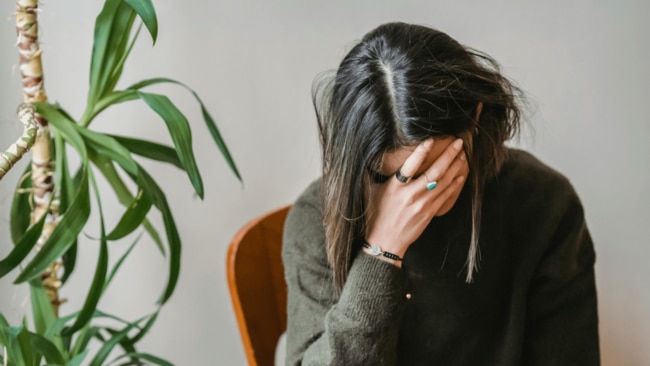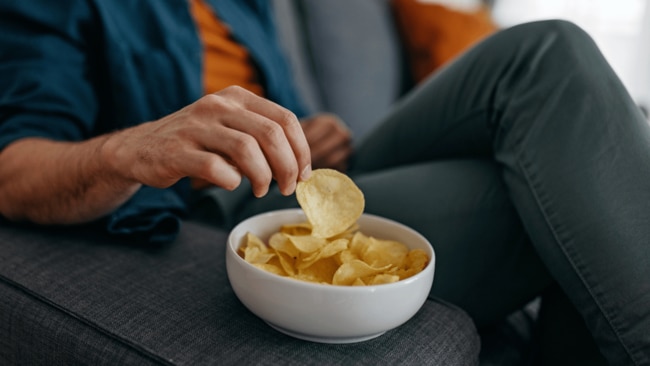5 foods that trigger anxiety, according to a nutritional psychiatrist
You may want to rethink that morning coffee
Lifestyle
Don't miss out on the headlines from Lifestyle. Followed categories will be added to My News.
The food we eat affects our mood and energy throughout the day, but it can also impact our mental health. Struggling to figure out which foods trigger your anxiety? A nutritional psychiatrist shares the top five culprits.
If you’ve ever had a strong coffee on an empty stomach and immediately felt the beginnings of a panic attack, you know food can impact your mental health.
The foods we fuel our bodies with affect how we feel and function, and can contribute to our stress levels.
Gut inflammation doesn’t stay confined to our guts, and can wreak havoc on our brains.
Gut health and anxiety
UNSW Professor of Medicine and consultant gastroenterologist Emad El-Omar said “depression, anxiety – these and other disorders are directly linked to what happens in the gut”.
Much of the blame for mental illness often falls on genetics or trauma, but he said “there’s not much you can do to change your genes, whereas the microbiome is eminently manipulatable”.
Harvard-trained nutritional psychiatrist and nutritional biologist Uma Naidoo wrote about the ‘gut-brain connection’ in Mind Body Green. She said “the gut and the brain are in constant two-way communication and the health of one directly influences the health of the other. Our gut microbes, specifically, are a key determinant of anxiety symptoms.”
“When inflammation is present in the gut, it can lead to inflammation in the brain called neuroinflammation. Evidence tells us that neuroinflammation is increased in those with anxiety, so those looking to reduce symptoms of stress should avoid anxiety-inducing foods”.

Foods that can contribute to anxiety
While there are countless factors that could be contributing to your anxiety like stress, hormones or medications she recommends limiting some foods while trying to reduce your symptoms:
#1. Processed foods
Naidoo said “Packaged foods that we find on grocery store shelves with lengthy ingredient lists and expiration dates are typically packed with processed additives like sugar and omega-6 fatty acids. When consumed in excess, these ingredients feed the bad microbes in the gut and worsen inflammation (and, therefore, stress) over time. These foods are also devoid of brain-boosting vitamins, minerals, and fiber.”
The nutritional psychiatrist suggests looking to buy “nutrient-dense whole foods like fresh or frozen vegetables and clean proteins” instead, and adding in “budget-friendly dried beans, lentils, legumes, canned wild salmon, oysters, or mussels, organic beans, and chickpeas.”

#2. Added & refined sugars
While sugar is an important part of our diets, consuming too much can increase inflammation and feed bad gut bacteria, which ultimately isn’t great for our mental health.
Naidoo said “Because sugar is a substance that has an addictive effect, the less we eat over time, the less of it we will crave. However, for those really looking for a sweet, I recommend reaching for a handful of blueberries or a square of extra-dark natural chocolate.”
#3. Industrial oils
The expert said “highly processed, inexpensive oils… such as [those made from] corn, grapeseed, soybean, sunflower, and palm fruit” can be high in omega-6 fatty acids, which can “contribute to an excess of inflammatory molecules throughout the body, especially in the gut and brain.”
She recommends swapping these out for extra-virgin olive oil or avocado oil when cooking at home for a more gut-friendly alternative.

#4. Alcohol
We don’t need to tell you alcohol isn’t the best thing for those battling anxiety. Your morning after hanxiety would’ve already made that incredibly clear.
While a few drinks won’t make everyone feel anxious, if you’re already feeling uneasy, it might be a good idea to limit your intake.
Naidoo suggested opting for drinks “that are low in added syrup, sugars, and juices” to be a bit kinder to your gut.
#5. Coffee
Maybe the thing with the most obvious and immediate impact on your anxiety, while coffee can give you the energy boost to face the day, that energy can quickly turn into an intense awareness of your quickened heartbeat. Which isn't great for the anxious.
We’re not about to tell you to cut out your morning treat, but if you’re noticing you feel stressed or panicky after your iced latte, you may want to think about reducing the amount you’re drinking. Maybe cut back to one cup a day, or swap out your double shot for a single or even a half shot.
Naidoo recommended drinking your coffee with “minimal added ingredients”.

Adjusting your diet to support your mental health
Of course everyone’s dietary needs and gut microbiomes are different, so what you really need to focus on is listening to your body and noticing how different foods make you feel.
These foods may increase some people’s inflammation, but be absolutely fine for you. At the end of the day, you should be aiming for balance in your diet, and reaching for foods that fuel you.
If you are looking to fight inflammation and stress, the expert suggests you “focus the diet on nutrient-rich plant foods with plenty of healthy fats and clean proteins.”
“Fiber is also your friend when it comes to anxiety”, she said. “Fiber, a vital nutrient for the gut microbes, comes from filling foods like vegetables, lentils, nuts, and seeds that digest more slowly and help to keep your emotions and blood sugar steady.”
More Coverage
Originally published as 5 foods that trigger anxiety, according to a nutritional psychiatrist





